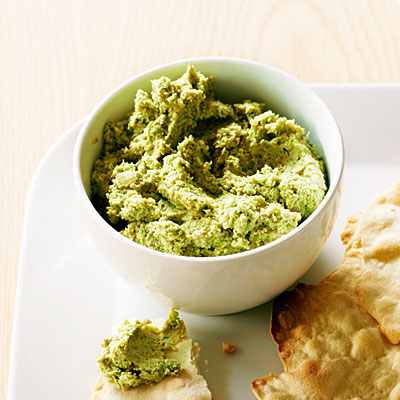
Passovers during my high school years were games of “What-will-Dani-bring-to-school-for-lunch-today”? Hosting Seders at my house almost every year meant that we always had an insurmountable amount of leftover Peschadike food in our fridge. This, combined with the fact that the only Kosher for Pesach thing my school cafeteria served was plain matzah with butter, meant that these leftovers, which consisted of Ashkenazi traditional favorites like gefilte fish and tzimmis, filled my lunchbox daily. I loved it. Admittedly, my non-Jewish high school friends occasionally found some of the meals I ate bizarre, especially, as I recall, the one when I brought chopped liver and TamTams. None of us ever felt like my eclectic food choices divided us from each other, no more than my decision not to eat bacon when we went to the local diner at other times during the year did.
Yet, somehow, watching my classmates’ faces contort as I spread the liver over my TamTams, or the horseradish over my gefilte fish reinforced that our families came from different places, and in turn reminded me where exactly I came from. On the one hand, I mean that this reminded me of my Ashkenazi heritage; I ate the same foods that my great-grandparents had brought with them from di alter heim (the Old Country), often made with their recipes. I guessed that, for instance, my Italian Catholic friend’s ancestors hadn’t scarfed down gefilte fish in quite the same way. The differentiation reminded me not only of my personal familial history, but also of my Jewishness as a whole. After all, had it not been Passover, I probably wouldn’t have bothered bringing leftovers to school at all. I probably would have either purchased it at school or brought a normal sandwich like my friends did. Finally, eating these meals at lunch, despite the playful repulsion of my friends, reminded me where I had come from as Plung-Graubard. The tzimmis reminded me of my grandmother who cooked it, the liver of my grandfather who loved it, the gefilte fish of my brother who repeatedly made wisecracks about its similarities to a Chicken McNugget, and all of the food of the Seder that my family had shared together. These last two aspects of my identity—Jewishness and Plung-Graubard-ness—have always been two of the most important themes of Pesach for me, and by eating my strange Ashkenazi foods at school, I relived that.
This upcoming Pesach, I know that my experience will be at least slightly different. While there might be Seder leftovers at Hillel, I most likely will not bring them to the UChicago Dining Hall with me. I will not be home for a Seder with my Plung-Graubard family, my father will not lead the Seder I attend, and food memories will most likely not remind me of home. (Even if my cook friend’s matzah brei is as wonderful as I’ve heard it is, it cannot rival my mother’s, especially because I won’t be sitting around my kitchen table with my parents and brother the Sunday morning of Pesach eating it.) But I do know that I will be reminded of, and think a lot about, that second thing Pesach always reminds me of: being a part of the Jewish people. The Seder itself always reminds me of this; in the Exodus story we see Israel come together as a nation for the first time, reminding me that I am a continuation of that same story. Furthermore, I know that as I enjoy the Seder, thousands if not millions of Jews are doing the same thing. Because my personal family is a part of this tradition, I know that I will connect with them for the holiday through it.
But I also connect to something deeper. In a previous piece , I wrote about wanting to create my own sense of Judaism, true to that which had been a part of my childhood but still something uniquely mine. I think Passover, when we celebrate the newfound autonomy the Jewish people received upon leaving Egypt, while still mindful of their struggles to remain in touch with and faithful to the God of their ancestors, is a perfect time to do this. This year, I will celebrate Pesach with a college community that, while embracing, I have nonetheless had to carve out a place for myself in. I am hopeful that in subsequent years, I will remember Pesach as a way to connect to this community in the same way as I use liver, tzimmis, and gefelte fish to connect with my family now.
Dani Plung is a student at the University of Chicago.
